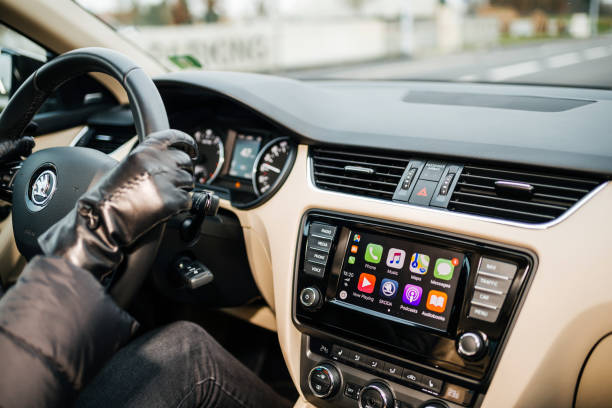Whether you are a professional athlete and preparing to participate in the next Olympics or you exercise just to stay in shape, you need to follow a highly nutritious diet.
All the athletes out there need to eat a balanced diet to stay healthy physically and psychologically. Good nutrition can help to enhance your sports performance and help with effective recovery.
Most of the athletes tend to follow vegetarian diets for health, ethical or environmental concerns. Although, managing all the required nutrients through a plant-based diet could be a difficult task.
But, you don’t have to worry because we bring you the best vegan foods which you can include in your diet to maximize your athletic performance.
Daily Diet Requirements Of Athletes
All athletes have different nutritional demands according to the sport they are practicing. Runners need high energy but have to maintain their weight.
Boxer’s diet is more inclined towards building endurance and improving their power. Although, a basic training diet should be sufficient for the following needs:
- Provide the required energy to meet the demands of training.
- Helps in maintaining optimal weight and fat percentage.
- Prevents dehydration by supplying the right amount of fluids.
- Is effective for maintaining health in the long term.
Is A Vegan Diet Enough For Athletes?
A vegan diet provides all the nutrients required by your body. Vegetables are rich in carbs, proteins, vitamins, and antioxidants.
The three main nutrients that are needed by every athlete or an average person are:
Carbohydrates
They are also known as fuel for your body. Carbs provide your body with the right amounts of energy to effectively execute any exercise.
Carbs are broken down into calories through the process of oxidation. Every gram of carb provides nearly 4 calories. And, when you are training your body burns these calories to fulfill the energy demand.
Your body stores extra carbs in your muscles and liver for later use when you are not getting enough carbs through your diet.
Following a low-carb diet won’t be beneficial if you are an athlete or follow an active lifestyle. It can cause headaches, nausea, constipation, and a lot more.
High Carb Vegan Foods
- Carrots
- Corn
- Sweet potato
- Brussels Sprouts
- Acorn squash
Proteins
Protein is an essential part of a training diet, it plays an important role in the recovery after exercise.
Their primary function is to build muscles and maintain healthy bones. They help in repairing broken tissues and oxygenate the red blood cells in your body.
Proteins also help in digestion as they help in building digestive enzymes, they also play a key role in hormone regulation.
High Protein Vegan Foods
- Tofu
- Lentils
- Hempseed
- Green peas
- Red beans
- Chia seeds
Fats
Fitness enthusiasts consider that fats are something that you should avoid at any cost. It’s because most people out there don’t know the difference between good and bad fats.
Good fats help in controlling blood pressure, lower cholesterol levels, prevent inflammation, and a lot more.
Fats play a crucial role in athletic performance. They are used as fuel for moderate-intensity exercises. Fats supply continuous energy to your body during long workouts.
High Good Fat Vegan Foods
- Avocado
- Olive oil
- Almonds
- Chia seeds
- Coconut oil
When You Should Be Eating?
Athletes need to know at what time they should eat their meals to maximize the benefits of a vegetable diet. If you know the right time for taking different nutrients then you will be able to achieve your goal soon.
You can find a lot of blogs online to search for meal plans and what exercise regimens you have to follow. For now, we will be sharing some of the best meals according to the time you should consume them.
What To Eat For Breakfast?
The first meal of your day means the breakfast should have a high amount of complex carbs, proteins, and fats.
Some of the meals that you can add to your vegetarian breakfast are:
- Scrambled eggs and cheese
- Oatmeal with fruits
- Quinoa and beans
- Sweet potatoes with vegetables
- Tofu with bread
- Fruit smoothies
What To Eat Before Training?
Properly fueling your body before your training session is crucial for maximizing your performance during the workout.
We know that the best fuel for your body are carbs, so your pre-workout meal should contain a good amount of complex carbs
Some of the pre-workout meals that you can try are:
- Peanut butter sandwich
- Fruit smoothie
- Avocado sandwich
- Granola bar
- Apple, banana
- A bowl of porridge
What To Eat After Training?
Your post-workout diet should have a large portion of protein to help you recover the muscle fibers which were torn during the workout.
After you finish training, your body works to rebuild the depleted glycogen levels in your body. This is done by eating the right amount of protein and carbohydrates.
The proteins help in increasing the growth of your muscles. Not eating enough protein after a workout will result in loss of muscle mass and fatigue.
And, for effectively restoring the depleted glycogen levels you need to add some carbs to your meal.
Some of the post-workout meals that you can try
- Red beans and fruit salad
- Tofu kebabs
- Vegan protein bars
- Lentil soup
- Eggs
- Tofu and vegetable scramble
Athour Bio
Ann Edwards is the fully qualified personal trainer from Elite sports. She has been helping people in the field of bodybuilding and fitness from more than a decade. Her career in nutrition and physical therapy has made her a fine addition for our team.















